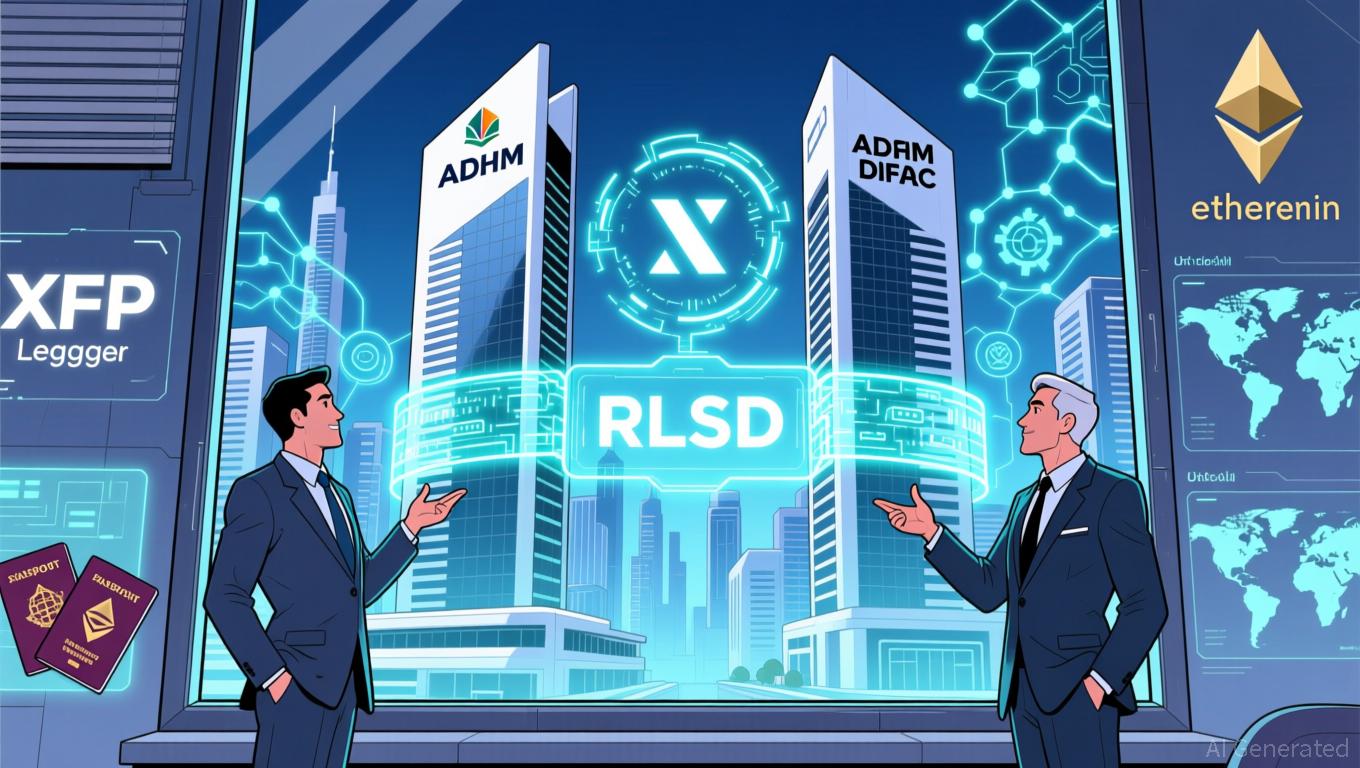XRP Update: ADGM's Green Light for RLUSD Strengthens UAE's Pursuit of Digital Financial Growth
Ripple’s RLUSD Stablecoin Achieves Regulatory Approval in Abu Dhabi
Ripple’s US dollar-pegged stablecoin, RLUSD, has reached a significant regulatory milestone in the United Arab Emirates. The Financial Services Regulatory Authority (FSRA) of Abu Dhabi has officially recognized RLUSD as an “Accepted Fiat-Referenced Token,” permitting its use by institutional players within the Abu Dhabi Global Market (ADGM) financial district.
This approval, announced in November 2025, allows licensed financial institutions in the region to utilize RLUSD for a range of activities, including managing collateral, lending, and facilitating international payments. The move follows a similar endorsement from Dubai’s Dubai International Financial Centre (DIFC) in June 2025, highlighting Ripple’s strategic expansion into the UAE’s rapidly developing digital asset sector.
Strengthened Regulatory Framework for Stablecoins
ADGM’s decision reflects its evolving approach to digital asset regulation, now placing fiat-backed stablecoins like RLUSD under rigorous oversight. Only tokens that satisfy strict requirements—such as full reserve backing, independent audits, and robust anti-money laundering (AML) controls—are permitted for use by banks, custodians, and investment firms.
RLUSD, issued under a trust charter from the New York Department of Financial Services (NYDFS), meets these high standards. It is fully backed by US dollar reserves and maintains segregated assets, positioning it as a compliant settlement option for institutions, particularly in areas like capital markets and treasury management.
Ripple’s Expansion Strategy in the UAE
Ripple has methodically expanded its presence in the UAE. The company initially received preliminary approval from Dubai’s Financial Services Authority (DFSA) in October 2024, followed by full authorization in March 2025. By November 2025, RLUSD was already operational within the DIFC and has now extended its reach to ADGM, a jurisdiction recognized for its alignment with international regulatory standards.
This dual recognition in both the UAE and the United States further cements RLUSD’s reputation as an institutional-grade stablecoin. Jack McDonald, Ripple’s senior vice president of stablecoins, noted that major financial institutions are already adopting RLUSD for collateral and payment purposes.

Market Growth and Institutional Demand
Clear regulatory guidelines have fueled RLUSD’s growth. By November 2025, the stablecoin’s market capitalization had exceeded $1.2 billion, with more than $1 billion circulating on Ethereum and $225 million on the XRP Ledger. This expansion is driven by institutional demand, as only licensed entities—not retail users—are permitted to mint RLUSD. The stablecoin’s adoption is further supported by Ripple’s partnerships with UAE-based firms such as Zand Bank and Mamo, reinforcing its role as a cross-border settlement solution.
Impact on XRP and Broader Market Trends
Ripple’s regulatory achievements have also positively influenced XRP, the native token of the XRP Ledger. In late 2025, XRP’s price surged over 24% following the introduction of XRP-focused ETFs by Grayscale and Franklin Templeton, which together attracted $164 million in new investments. Analysts link this momentum to Ripple’s enhanced institutional credibility, driven by its stablecoin approvals and strategic acquisitions. With ETF inflows now surpassing $628 million, some market observers predict that total assets could reach $6.75 billion if XRP adoption mirrors trends seen with Bitcoin and Ethereum ETFs.
UAE’s Position as a Digital Finance Leader
The approval of RLUSD underscores the UAE’s ambition to become a global leader in digital finance. Arvind Ramamurthy, ADGM’s chief market development officer, emphasized the region’s strong regulatory environment as a key factor attracting innovators like Ripple. Meanwhile, managing director Reece Merrick highlighted the UAE’s influence in shaping global standards for digital asset regulation. As Dubai and Abu Dhabi finalize their frameworks for fiat-backed tokens, RLUSD’s regulatory success could serve as a model for future approvals, further strengthening the UAE’s role in the digital asset ecosystem.